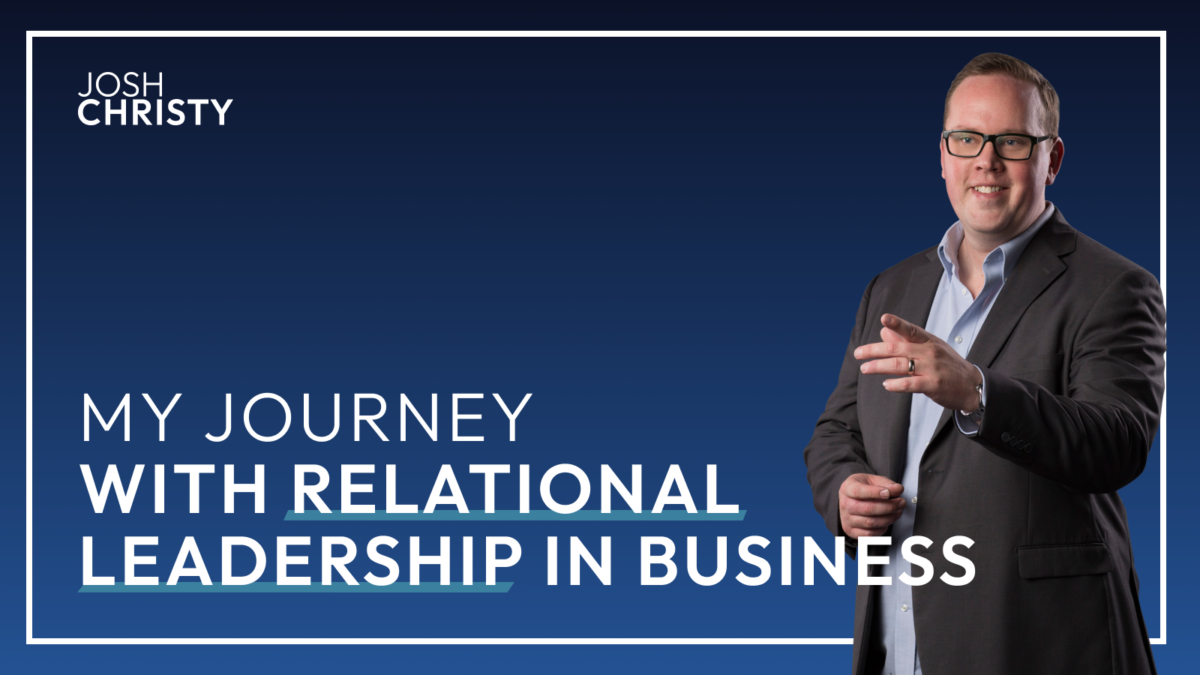
In the ever-evolving realm of business, leadership styles have undergone a remarkable transformation. Gone are the days when leadership was solely about giving orders and expecting compliance. In today's interconnected and dynamic business environment, I've come to recognize the immense value of relational leadership. This leadership approach emphasizes the cultivation of positive relationships within an organization, leading to heightened collaboration, increased employee engagement, and ultimately, superior business outcomes.
My Understanding of Relational Leadership
Relational leadership, to me, is a powerful and transformative leadership style that revolves around building strong, meaningful connections with team members, colleagues, and stakeholders. Rather than relying solely on authority, relational leaders leverage empathy, active listening, and open communication to inspire trust and collaboration. Here are some key principles that have come to define my journey with relational leadership in the world of business:
Empathy: I've discovered that one of the cornerstones of relational leadership is the ability to genuinely understand the perspectives, emotions, and needs of my team members. Showing genuine concern for their well-being and fostering a supportive work environment has been instrumental in building trust.
Active Listening: Effective communication is a bedrock of relational leadership. I've made it a point to listen to my team members actively, encouraging open dialogue and valuing diverse viewpoints. This has fostered a culture of inclusivity and innovation within my organization.
Building Trust: Trust forms the bedrock of strong relationships. I've consistently strived to demonstrate integrity, authenticity, and reliability, earning the trust and respect of my teams over time.
Collaboration: I've come to understand that relational leaders actively promote teamwork and collaboration, encouraging employees to work together toward shared goals. I've seen firsthand that diverse perspectives often lead to creative solutions and better decision-making.
Coaching and Mentorship: Relational leadership isn't just about managing; it's also about investing in the growth and development of team members. I've made it a priority to provide guidance, support, and opportunities for skill-building, helping my employees reach their full potential.
The Rewards of Relational Leadership
Embracing relational leadership in my business journey has brought about a host of benefits:
Enhanced Employee Engagement: As my team members began to feel valued and heard, their engagement and motivation levels soared. This surge in engagement translated into higher productivity and lower turnover rates.
Improved Communication: By fostering a workplace where open and honest communication is the norm, I've witnessed better problem-solving, reduced conflicts, and smoother operations.
Innovation: Collaboration and the free exchange of ideas have led to innovative solutions and a competitive edge in the market. I've learned that by harnessing the collective intelligence of my teams, I can drive innovation.
Better Decision-Making: Inclusive decision-making processes have resulted in well-rounded and informed choices. By tapping into the diverse expertise of my team members, I've seen better outcomes.
Stronger Organizational Culture: A culture built on trust, respect, and collaboration has not only attracted top talent but also retained valuable employees. It's fostered a positive reputation for my organization, which has become a competitive advantage.
Implementing Relational Leadership in My Business
To fully embrace relational leadership within my organization, I've taken these steps:
Lead by Example: I've made a conscious effort to demonstrate the behaviors and values I wish to see in my team. Being authentic, empathetic, and open in my interactions has set the tone for the entire organization.
Invest in Training: I've provided leadership training and development programs that focus on relational skills such as active listening, empathy, and conflict resolution.
Encourage Feedback: Creating a culture where feedback is welcomed and acted upon has been a priority. This fosters continuous improvement and signals my commitment to growth.
Foster Collaboration: I've implemented collaborative tools and processes that facilitate teamwork and knowledge sharing throughout the organization.
Recognize and Reward: Acknowledging and rewarding employees who exemplify relational leadership qualities has reinforced the desired behaviors and encouraged others to follow suit.
My journey with relational leadership has been nothing short of transformative. I've learned that it's not just a buzzword; it's a proven approach to achieving success in today's complex business landscape. By prioritizing relationships, communication, and collaboration, I've created a more engaged and motivated workforce, driven innovation, and built a resilient organizational culture. As a leader, embracing relational leadership has been the key to unlocking my team's full potential and achieving sustainable success.



